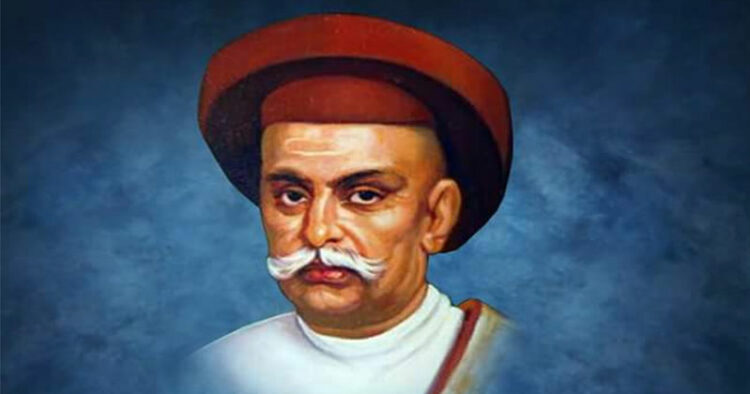Mahadev Govind Ranade, also known as Justice Ranade, was a well-known Indian nationalist academic, social reformer and lawyer. Ranade vehemently battled superstition and societal problems and actively took part in initiatives to improve society. Social reform movements like Prarthana Samaj, Arya Samaj, and Brahm Samaj significantly impacted him. He was one of the Deccan Educational Society’s founders as well as a founding member of the Indian National Congress. On January 18, 1842, Mahadev Govind Ranade was born in a middle-class Maharashtrian family in Niphad, Nashik.
Before switching to an English-medium school, he first attended a Marathi school in Kolhapur. He joined Bombay’s Elphinstone College at the age of 14. He was a member of the University of Bombay’s first class. In 1862, he earned his B.A. and, four years later, his LLB. He began his career in 1871 as the Presidency Magistrate at the Bombay Small Causes Court. As a judge who rose through the ranks, he was elected to the Bombay Legislative Council in 1885. He was appointed to the Bombay High Court in 1893.
Ranade was a scholar and a passionate social reformer and thinker. He championed education for women and widow remarriage and opposed child marriages and the mistreatment of widows. Mahadev Govind Ranade resisted the caste system. He also advocated for the growth of indigenous small-scale industries to create a stable economy. He was one of the Congress Party’s founders. He supported fully constitutional ways of achieving the different objectives of activists and reformers. He kept the localisation of English works and worked to integrate regional languages into the university curriculum.
He had a significant role in founding and promoting the Prarthana Samaj, Poona Sarvajanik Sabha, and Vaktruttvottejak Sabha. He also edited and made contributions to periodicals in Marathi and English. In 1885, Justice Ranade founded the Maharashtra Girls Education Society and Huzurpaga, the first girls’ high school in Maharashtra, together with Vaman Abaji Modak and Dr R. G. Bhandarkar. He was chosen to serve on a committee in 1897 that was tasked with compiling a list of all federal, state, and municipal expenditures, as well as making recommendations to stabilise the budget. He received the “Companion of the Order of the Indian Empire” (CIE) honour from the British Government for his work on the committee.
Nationalist sentiment was extreme in the early twentieth century. It was a time when a vast number of British-centric texts came into existence. They attempted to portray an unchanging Indian state in such publications, in addition to demeaning Indian society. Many nationalist intellectuals began writing on India’s history in contrast to the works produced by imperialists. The rise of the Marathas was one such subject on which the works of nationalist historians were focused.
It is necessary to reflect on M.G. Ranade’s argument, which has a lot of historical relevance, as we mark the 122nd anniversary of his demise on January 16. The idea that the British had seized power from the Marathas and not the Mughals was initially advocated by M.G. Ranade. We usually hear how, when the British defeated the Indians in 1857, the power of the last Mughal emperor was transferred to the English. This perspective obscures the history of the battles the British had to fight and win against indigenous forces, and Marxist researchers strongly back it. Among the native powers, only the Marathas represented a true pan-Indian force.
He wrote several works on Indian economics. Rise of the Maratha Power is his best-known work. His brilliance had numerous facets, including his advocacy for social reform and his study of political economy and history. The history of the Marathas interested this nation-builder mainly because their rise exemplified “the first beginnings of what one may well call the process of nation-making.” He had planned to present the work in two halves. In 1900, the first volume was released. When new records were made accessible to the public by the government, demanding a scholarly investigation, the second part’s handwritten notes were likewise almost complete. However, death intervened before he could finish.
Although Justice Ranade humbly referred to this work as “these stray chapters,” it is a masterpiece. His broad scope and exceptional understanding of the critical events in Maratha history demonstrate a vision and a command that suggest he would have become a great historian if he had not chosen to work in other areas. No other work has masterfully condensed the vivid sketch of the Maratha power ascent into such a limited scope. It serves as an example for students and historians.
The book is rightfully regarded as a classic since it had such a significant impact on further research into Maratha history and on how people saw India’s history as a whole. At the age of roughly 59, Justice Ranade passed away in 1901.




















Comments